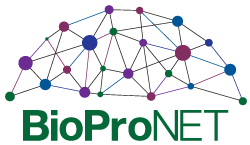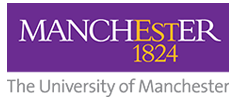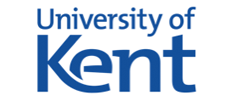The Principal Hotel, Manchester
June 3-4th 2019
Our flagship science meeting this year reflected on the science that has been developed to date through BioProNET support, and also provide a forward vision of the science that will underpin the next 10 years of bioprocessing.
| 10.00 | Registration |
| The Cell Factory: Proteins are go
co-chaired by Emma Hargreaves and Mark Smales |
|
| 11.00 | Nicole Borth, University of Natural Resources and Life Sciences (BOKU), Vienna – CHO genome news: variation, phenotypes and control |
| 11.30 | Tobias von der Haar, University of Kent – Controlling bioprocessing parameters through efficient sequence design |
| 11.45 | Sarah Smith, University of Warwick – Exploiting electron microscopy to optimise protein and biologic expression systems |
| 12.00 | Anil Day, University of Manchester – A high-yield expression platform for manufacturing recombinant human growth factors |
| 12.15 | Jose Guterriez-Marcos, University of Warwick – Rapid production of high value biologics in plant cell cultures |
| 12.30 | Poster talks: Gizem Buldum, Imperial College London – Monitoring the effect of accessory proteins on a CHO-based cell-free protein synthesis factory
Théo Mozzanino, University of Kent – Engineering the CHO secretory pathway for enhanced secretory recombinant protein production |
| 12.40 | Douglas Browning, University of Birmingham – Playing a round with recombinant protein production: what is PAR for the course |
| 12.55 | Lunch |
| The Cell Factory: Nucleic acids are go chaired by Nicole Borth | |
| 14.00 | Uta Griesenbach, Imperial College London – Latest developments in cystic fibrosis gene therapy |
| 14.30 | Michael Plevin, University of York – DNA motor proteins for nanopore sequencing |
| 14:45 | Duygu Dikicioglu, University of Cambridge – Addressing challenges in pre-processing and mining bioprocess development data in biocatalyst manufacturing by machine learning |
| 15.00 | Lorna Ashton, Lancaster University – Raman spectroscopy and gene therapy |
| 15.15 | Poster talks: George Prout, Cobra Biologics – Optimisation of a scalable rAAV production process
Zoltán Kis, Imperial College London – Techno-economic analysis of emerging vaccine platform and production technologies |
| 15:25 | James Budge, University of Kent – Engineering of CHO cell lipid metabolism to enhance biotherapeutic protein production |
| 15.40 | Refreshment break, networking, posters |
| Beyond the Cell and into Manufacturing chaired by Gary Lye | |
| 16.10 | Nigel Robinson, Durham University – Protein metalation in Industrial Biotechnology: E3B BBSRC NIBB opportunities |
| 16.40 | Jon Sayers, University of Sheffield – Engineering nucleases for genetic engineering and diagnostic applications |
| 16.55 | Gary Montague, Teesside University – Improved preservation of biologics by continuous intensified lyophilisation |
| 17.10 | Hirra Hussain & Louis Darton, Universities of Manchester and Kent – The BBSRC-funded Strategic Training Awards for Research Skills (STARS): The Bioprocessing Training Programme |
| 17.25 | Mark Carver, Bio-Industry Association SIAC – Shaping the future: where next for bio-processing research? |
| 17.55 | Hotel check-in |
| 18.20 | Poster session and drinks reception |
| 20.00 | Conference dinner |
Day 2 – 4thJune
| New Approaches and Enabling Technologies chaired by Paul Dalby | |
| 8.45 | Paul Kellam, Kymab – Deep mining of antibody responses – picking your best therapeutic mAb or vaccine |
| 9.15 | James Winterburn, University of Manchester – Enhanced glycolipid production and separation: from bench to business with UKRI funding |
| 9.30 | Alan Goddard, Aston University – Separation of sub-micron biologicals using microfluidic devices |
| 9.45 | Mark Wass, University of Kent – In silico analysis of host cell protein impurities in antibody purification |
| 10.00 | Jim Warwicker, University of Manchester – Computational approaches to study biopharmaceutical stability and formulation |
| 10.15 | Poster talks: Cloé Legrand, University of Cambridge – MRI characterisation of a microscale parallel bioreactor
Guido Zampieri, Teesside University – Combining machine learning and metabolic modelling as a tool for bioprocess development |
| 10.25 | David Brockwell, University of Leeds – Assessing biopharmaceutical aggregation in vivo and in vitro |
| 10.55 | Refreshment break, networking, posters |
| The Future Should Not Be Unexpected chaired by Alan Dickson | |
| 11.25 | Damian Marshall, Cell and Gene Therapy Catapult – Cell and gene therapy manufacture: the emerging role for AI |
| 11.55 | Ray Field, AdaptImmune – Bioprocessing for autologous T cell therapy |
| 12.25 | Poster talks: Denis Calnan, Thermo Fisher Scientific – A high resolution accurate mass multi-attribute method for critical quality attribute monitoring & new peak detection
Vera Lukashchuk, Cobra Biologics – Development of analytical package for AAV vectors: focus on qPCR Tim Eyes, University of Manchester – GeneORator: Smart DNA library design to accelerate the identification of improved protein variants |
| 12.40 | Peter Levison, Pall Biotech – Operating in a changing landscape: future process development strategies |
| 13.10 | Prize presentation – Colin Miles, BBSRC |
| 13.15 | Lunch and meeting close |







